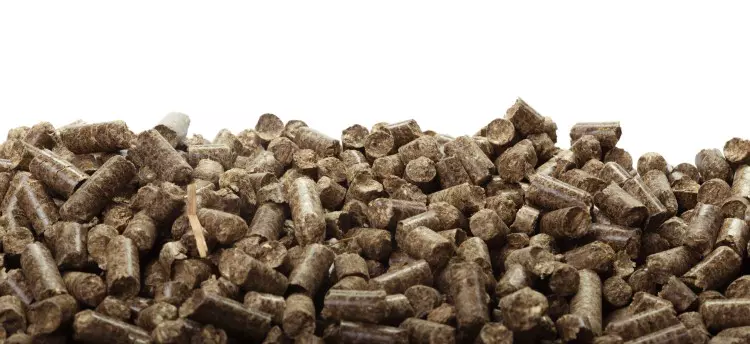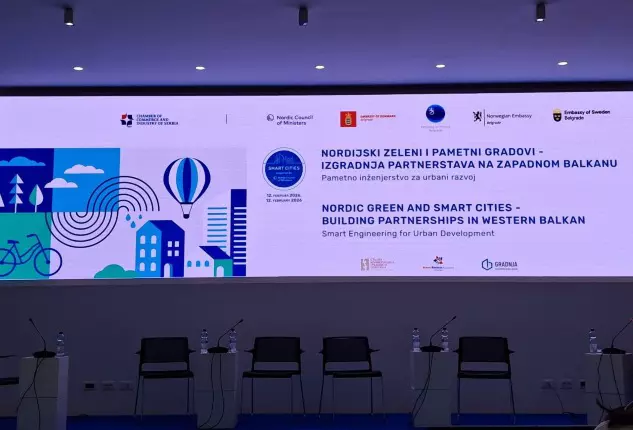This article is provided by our media partner Energetski Portal.
Clear regulations have recently come into force in the Serbia pellet market, bringing more order, safety, and transparency. For the first time, the quality of firewood, wood pellets, and wood briquettes is covered by a unified framework that standardizes the key characteristics of these fuels.
The Official Gazette of the Republic of Serbia has published the Rulebook on Technical and Other Requirements for Solid Fuels from Wood Biomass Placed on the Market of the Republic of Serbia, which precisely defines physical and chemical parameters, sampling methods, and mandatory laboratory testing. For pellets and briquettes, an additional layer of quality control has been introduced – through reports issued by accredited bodies and a mandatory declaration of conformity provided by producers and importers.
Wood pellet regulations in Serbia: industry perspectives
To better understand the implementation and potential impact of the new Rulebook on the Serbia pellet market, we spoke with two experts offering complementary perspectives: Igor Milekić, a representative of the pellet industry and Commercial Director of Sparrow d.o.o., and Prof. Dr. Branko Glavonjić, Full Professor at the Faculty of Forestry, University of Belgrade, and one of the principal authors of this regulation.
The rulebook from the producer’s perspective
According to Milekić, the idea of drafting such a rulebook dates back to 2017, when leading producers, in cooperation with Prof. Dr. Branko Glavonjić, warned about drastic variations in the quality of domestic pellets. The initiative was revived last year, in part due to a sharp decline in production and sales after 2023, with strong logistical support from the Serbian Chamber of Commerce.
Milekić notes that similar regulations already exist within the EU under the umbrella of international organizations such as ENplus, which brings together, registers, certifies, and monitors pellet producers and traders worldwide. Of the roughly 90 pellet producers in Serbia, 12 are members of ENplus.
“This new Rulebook aligns its technical requirements with ENplus standards while introducing a maximally tightened market control procedure, taking into account the presence of unfair competition and the critically poor quality structure of domestic supply,” explains Milekić.
Under the new rules, every pellet producer or importer must now demonstrate product compliance with 21 clearly defined parameters, twice a year. Accredited domestic laboratories, invited directly to the factories, collect samples and conduct analyses within a few days. If the results fall within the prescribed ranges, a quality declaration is issued, affixed to every single bag, and valid for six months until the next round of testing. The estimated cost of a single analysis will be several hundred euros – not a significant burden compared to overall production costs.

Impact on Serbia biomass industry
As Prof. Glavonjić explains, the Rulebook was driven by several main objectives – above all, to establish a unified, mandatory quality control system for wood fuels on the Serbia pellet market. In doing so, consumers are protected from poor-quality pellets and briquettes, while companies that have until now avoided laboratory checks lose their unfair advantage. Equal operating conditions are thus ensured for all producers and importers.
The most important change for firewood is the obligation for sellers to issue a certificate of conformity at the point of sale, guaranteeing that the wood meets the prescribed parameters.
When it comes to wood pellets, the key novelty is that only A1 and A2 quality classes may now be placed on the market – B-class pellets are no longer permitted. In other words, only top-quality wood pellets will be available in Serbia going forward.
Another important change is the obligation for producers to carry out semi-annual quality control of their pellets, covering 21 parameters grouped into three categories:
- Physical characteristics (dimensions, bulk density, mechanical durability, fine particle content, presence of additives)
- Chemical characteristics (ash content, ash melting behavior, nitrogen, sulfur, chlorine content, heavy metals)
- Energy characteristics (moisture content, net calorific value)
For a pellet to qualify as A1 class, every parameter must meet the prescribed values for that class. If even one parameter fails, the pellet is classified as A2.
“Based on the inspection and reports issued by accredited domestic laboratories, producers must affix a Declaration of Conformity to every individual package of pellets. The Rulebook prescribes the procedures laboratories must follow when testing pellet quality and the exact content of the reports they issue to producers. The most important innovation is that sampling must now be carried out directly in production, rather than using samples provided by the producers themselves – a practice that some had previously exploited,” explains Prof. Glavonjić.
Serbia pellet market and import rules
For imported pellets, the Rulebook prescribes three options:
- The foreign producer engages a Serbian accredited laboratory to conduct sampling and issue a report, based on which the producer provides a declaration of conformity.
- If the producer does not do so, the importer, after customs clearance, calls a domestic laboratory, which tests each shipment and issues a report enabling the importer to provide the declaration of conformity.
- Reports from foreign laboratories may also be accepted, provided all requirements of the Serbian Rulebook are met and there is a mutual recognition agreement with a domestic laboratory.
The Ministry of Mining and Energy publishes the list of accredited laboratories on its website.
Positive effects on Serbia pellet market
The new Rulebook, which takes effect on July 19, is expected to have several positive impacts on both consumers and market participants. The introduction of a unified system for pellet and briquette quality control will apply equally to all actors on the Serbia pellet market.
“The obligation to meet standards and undergo quality control should eliminate low-quality pellets and briquettes from the market, thereby increasing consumer confidence in these fuels. Buyers will have clearer information about the quality of the fuel they are purchasing, which means a lower likelihood of problems with combustion, ash, or damage to heating equipment,” says Prof. Glavonjić.
In conclusion, the Rulebook on Technical and Other Requirements for Solid Fuels from Wood Biomass represents an important step toward regulating the Serbia pellet market and improving the quality of pellets and briquettes. It is expected to support the sector’s recovery, strengthen the competitiveness of domestic producers, and build greater trust in wood bioenergy as a sustainable heating solution.
Author: Milica Vučković
Source: Nova pravila oblikuju tržište peleta u Srbiji – Energetski Portal
Read more about sustainable development in the Balkans here


